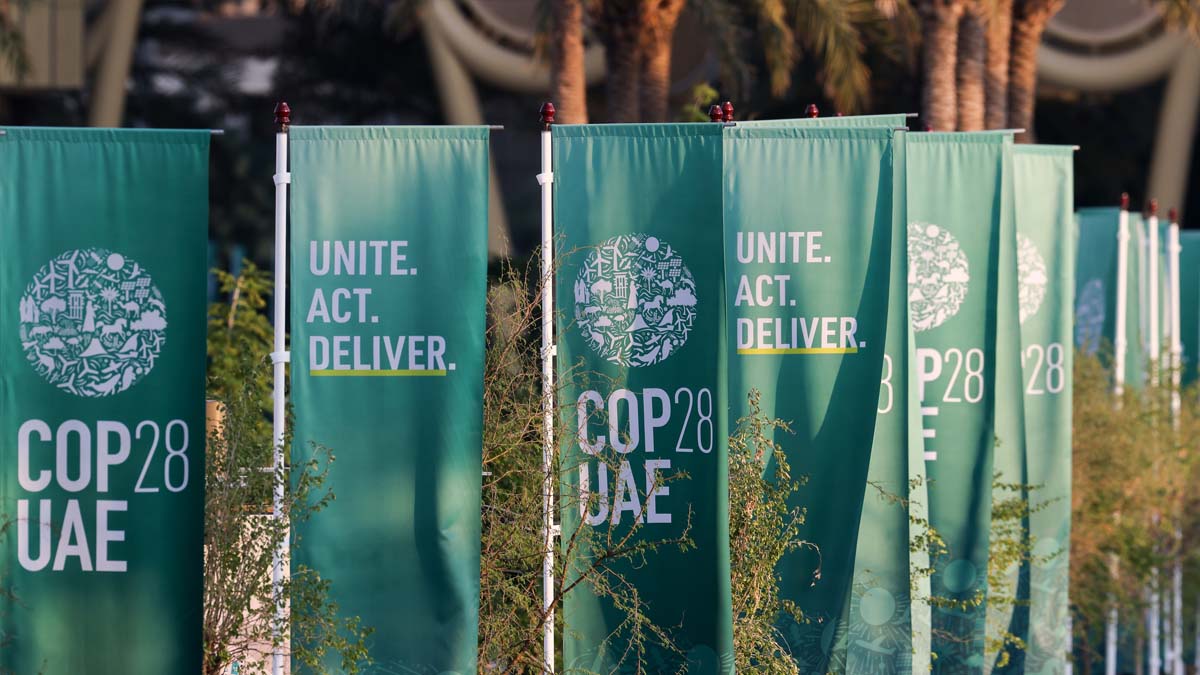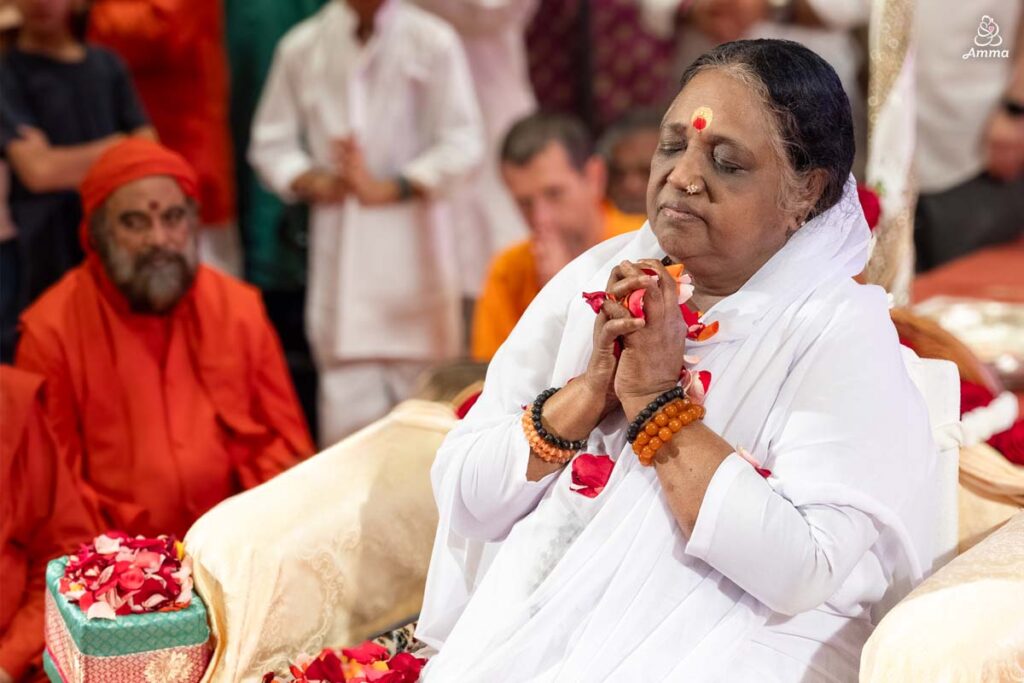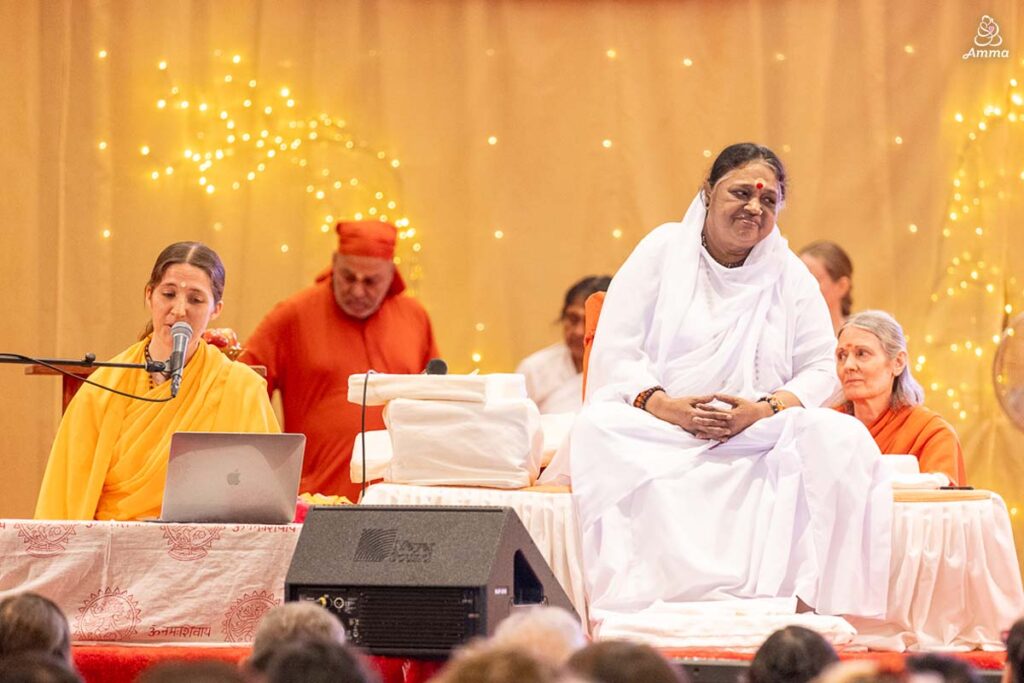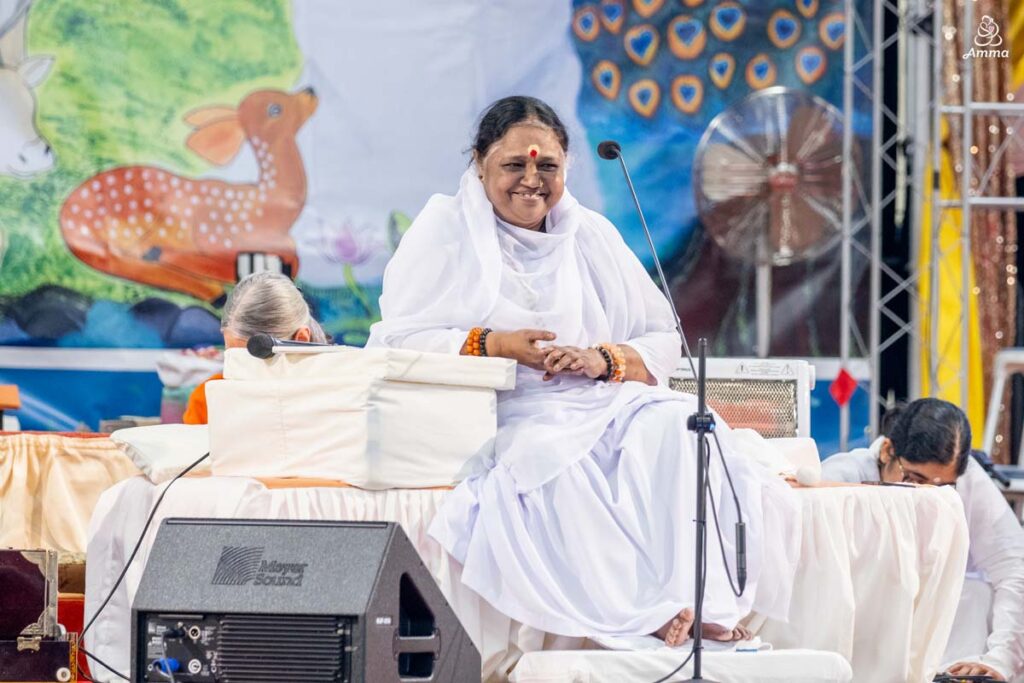Two professors from Amrita University took part in COP28, the UN’s annual climate conference where Governments gather to discuss how to limit and prepare for future climate change. This year it was held in Dubai, UAE from November 30-December 12, 2023 and concluded with an agreement that calls for the “beginning of the end” of the fossil fuel era. India’s Prime Minister Narendra Modi was among the world leaders who attended.
Prof. Maneesha V Ramesh is Amrita’s Provost, UNESCO Chair on Experiential Learning for Sustainable Innovation and Development, and Director, Amrita Center for Wireless Networks and Applications. As an invited speaker, she addressed two panels.
The first was “Indigenising Education for Climate Action: Strategies, Case Studies and Testimonies”. She spoke on practical tools for critical reflection and action based on Amrita’s work and practices with our 101+ adopted villages across India. She also shared about some of the university’s technological interventions based on education methods. This panel was organised by Space4Innovation/GEO Indigenous Alliance.
The title of the second session was “Indigenous-Led Climate Action: Democratising Space Data for Planetary Wellbeing and Education”. Prof. Ramesh highlighted how Amrita works with Indigenous communities to amplify climate education and implements key actions at the grassroots level. Amrita ensures the voices of villagers are heard and that they are respected as key stakeholders, thereby establishing inclusivity and cultural sensitivity.
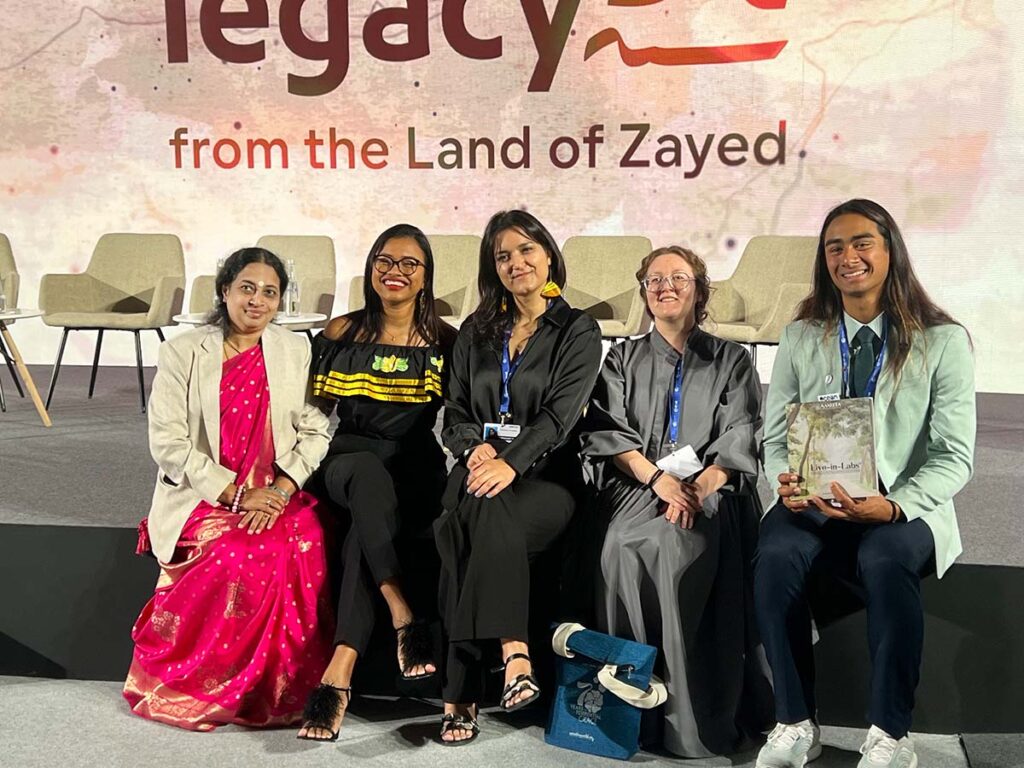
Prof. Bhavani Rao is Amrita’s UNESCO Chair on Gender Equality and Women’s Empowerment and Dean of the School of Social and Behavioural Sciences. As well, she is the Director of two research centres—AMMACHI Labs (Amrita Multi Modal Applications Using Computer & Human Interaction Labs) and the Centre for Women’s Empowerment and Gender Equality (CWEGE).
At a session entitled “Climate Crisis and Health of Women and the Girl Child: A Gender Perspective”, Prof. Rao addressed the need for values to eradicate environmental destruction. Rotary, in partnership with the Global CSR Foundation, hosted the panel discussion to delve into the disproportionate impact of climate change on women and the girl child, highlight climate change as a “threat multiplier”, increasing socio-economic and political tensions, and emphasise the need for gender-focused solutions in climate strategies.
Prof. Rao highlighted our Saukhyam Reusable Pads initiative, our 13,000+ Amrita SREE women’s self-help groups (SHGs), and our project to train SHGs in seaweed cultivation. The First Lady of Suriname and First Lady of the Commonwealth of Bahamas were present and expressed appreciation for such massive efforts.
Prof. Rao also was a panelist at a session entitled “Green Blockchain and Corporate Social Responsibility” at the COP28 UAE Green Blockchain Summit. It was also organised by Rotary and the Global CSR Foundation with the main compere Jing Zhao Cesarone, CEO of the Global CSR Foundation. In addition, she was a VIP invitee at the KuCoin Green Future Gala Dinner organised by KuCoin.
Blockchains are a distributed database or ledger shared among a computer network’s nodes, best known for their crucial role in cryptocurrency. However, they have become a contentious issue, as they produce a significant carbon footprint due to intensive energy consumption that results in greenhouse gas emissions.
Green blockchains are a new technology under development to reduce these carbon emissions, and the Green Blockchain Summit explored collaboration for a framework of blockchain sustainability standards. The program showcased how advanced digital technologies can contribute to achieve a green and digital transition in line with the UN Sustainable Development Goals.
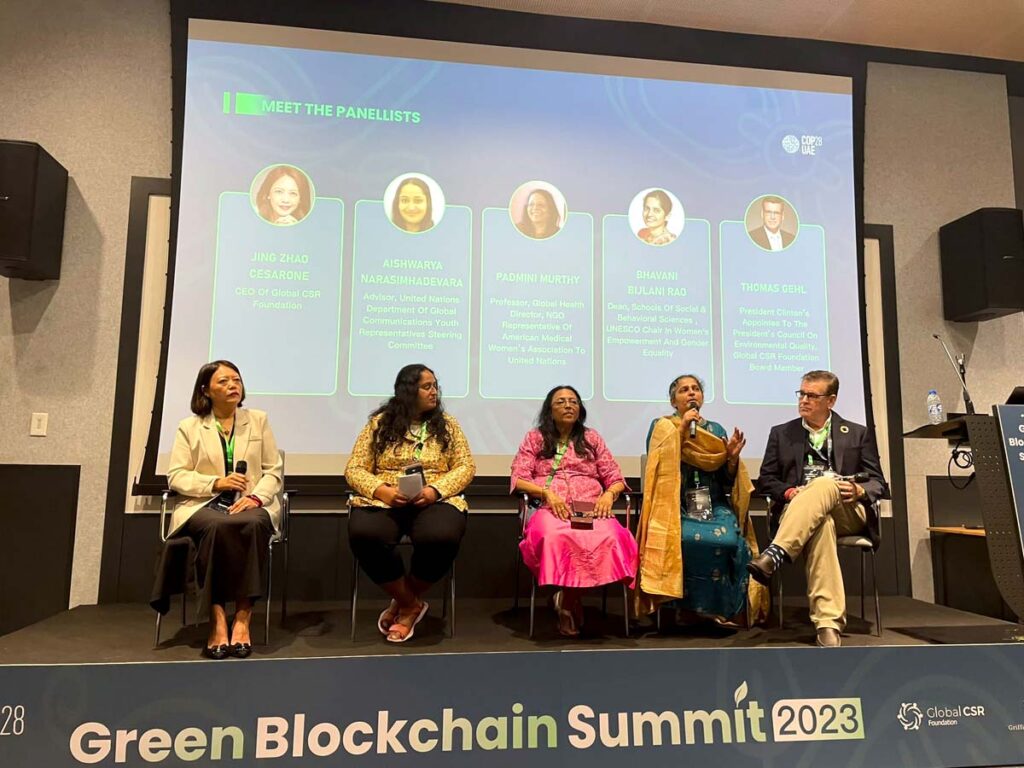
As well, Prof. Rao met with Prof. Jeffrey D. Sachs and Dr. Sonia Ehrlich Sachs, both with Columbia University. Prof. Jeffrey Sachs is a world-renowned economics professor, bestselling author, innovative educator, and global leader in sustainable development. He is President of the UN Sustainable Development Solutions Network, a commissioner of the UN Broadband Commission for Development, and an SDG Advocate for UN Secretary-General Antonio Guterres. In 2022, Amma as Chancellor of Amrita University conferred an honorary doctorate upon Prof. Jeffrey Sachs for his pioneering work on climate change and sustainable development.
Dr. Sonia Ehrlich Sachs, MD, MPH is a paediatrician, an endocrinologist and public health specialist. Since 2005 she has been leading efforts at the Earth Institute, Columbia University, to design and implement low-cost primary health systems in low-income rural Africa and India. Dr. Sachs is also the Director of the One Million CHW Campaign, advocating for professionalised Community Health Workers.
In terms of COP28 overall, negotiators from nearly 200 parties came together with a decision on the world’s first ‘global stocktake’ to ratchet up climate action before the end of the decade and keep the global temperature limit of 1.5°C within reach. COP stands for “Conference of Parties” where the “parties” are the countries that signed up to the original UN climate agreement in 1992.


